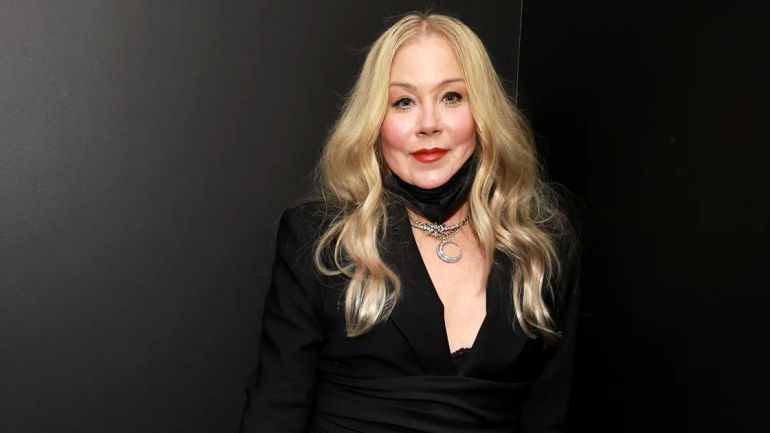
Christina Applegate Shares Challenges of Living with Multiple Sclerosis

Discover Christina Applegate's candid revelations about navigating life with a multiple sclerosis diagnosis, shedding light on her mental health battles and personal journey.
Christina Applegate discussed her mental health challenges following her diagnosis with multiple sclerosis. In a recent episode of the "MeSsy" podcast recorded in early 2024, the 52-year-old actress shared, "I don't find joy in life anymore. Things just don't bring me happiness like they used to."
Applegate mentioned to Jamie-Lynn Sigler that she finds it enjoyable when friends visit and chat with her while she's in bed.
She confessed, "I like that. But if someone suggests, 'Let's go for a walk.' Or, 'Let's grab a coffee,' I'm not a fan of that."
Applegate recently opened up about her current struggles with depression, admitting that she hasn't felt this way in years. She described it as a deep sense of hopelessness and fear that is overwhelming her. This feeling of being trapped in darkness is something she hasn't experienced in over two decades.
Applegate mentioned that she finally reached out to her therapist, something she considered a significant step, and had a therapy session planned for the next week.
She shared, "I have been avoiding therapy ever since I was diagnosed because I am scared that once I start crying, I won't be able to stop. So, instead of facing my emotions, I cope by making jokes about myself."
At the Emmys in January, Applegate made a quick appearance on stage. She mentioned that her first words were self-deprecating. She explained, “I felt myself starting to lose control and not be able to read what I was supposed to without, you know, making people laugh or feel more at ease.”
Talking about her joke about her disability at the event, Applegate shared, “I was so clumsy that I even slurred the word clumsy. ... I almost passed out as I was leaving the stage — that moment when you turn pale.”
Applegate has been open about her feelings towards the disease. In March, she mentioned that she doesn't want to rush her grieving process after being diagnosed in 2021.
During an interview on Good Morning America, Applegate expressed, "I'm not going to wake up one day and suddenly feel great about it. That's just not realistic. I'm reminded of it every day when I wake up... Right now, I'm isolating myself as a way of coping because I find it difficult to face the reality of it all."
Amid her battle, Applegate has a supportive crew by her side. This includes Johnathon Schaech, her ex-husband from 2001 to 2007, and her daughter, Sadie Grace. (Applegate shares her daughter with her husband, Martyn LeNoble.)
Schaech, 54, shared with We on Saturday, June 1, "She’s the toughest and one of the strongest women I’ve ever met. She’s gone through so much in her life. She’s prevailed every single time and she will prevail over this as well."
Editor's P/S:
Christina Applegate's candid account of her mental health struggles following her MS diagnosis is both heartbreaking and inspiring. Her raw honesty about her lack of joy and overwhelming depression sheds light on the profound impact chronic illness can have on one's emotional well-being. Applegate's decision to finally seek therapy after years of avoidance highlights the importance of professional support in navigating mental health challenges. Her struggle to reconcile her current state with her past happiness is a reminder that chronic illness can profoundly alter one's life experience.
Applegate's coping mechanisms, such as making jokes about her disability, are both understandable and concerning. While humor can provide temporary relief, it's crucial to address the underlying emotions that drive such coping strategies. Her vulnerability in sharing her experiences encourages others to prioritize their mental health and seek help when needed. Applegate's story serves as a reminder that even those who seem strong and resilient can face significant challenges, and that support and empathy play a vital role in the healing process.













